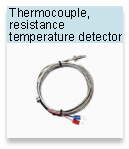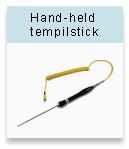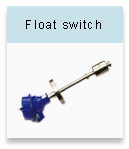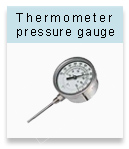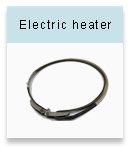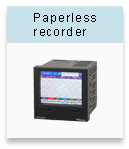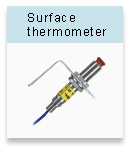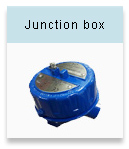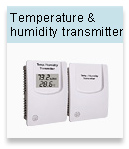Thermocouple / Resistance temperature detector (RTD)
Overviews
(1)Thermocouple principle – Seebeck Effect
When connecting two ends using two different kinds of metals (i.e., hot contact) and keeping the other end of the connection at zero degree C (i.e., cold contact) to form a close circuit and in the process of temperature change at the hot contact, there will produce a minute thermal electromotive force (EMF). With the thermal EMF value, we can calculate the temperature, which is the thermocouple.
(2)Sheath thermocouple
Cover the thermocouple with a metal sheath for protection. Then, fill up closely with inorganic mineral (highly pure magnesium oxide powder) as insulation in the tube. It is then made by annealing and pulling the entire thermocouple, increasing its voltage-withstanding and anti-oxidation abilities. It is flexible and its response speed has also been significantly increased, which is the sheath thermocouple, also called the armored thermocouple.
(3) Resistance temperature detectors (short for RTD). The resistance varies with the change of temperature. Using this property, we can convert the resistance into the existing temperature. In the past, the materials used as resistors are platinum, nickel, copper and so on. Since platinum’s stability and reproducibility are better than other metals, it has been widely used as the resistor body. Out of RTDs, PT100 is most commonly used. When temperature is at 0℃, the resistance value is 100Ω, therefore it is called PT100. Fabrication can be divided into four methods: Two-wire type, three-wire type and four-wire type. However, the four-wire type is most precise.
Specifications:
Thermocouple specifications: Applicable for: K, J, T, N, E, W, B, R, S - Type
RTD specifications: Applicable for: PT-100, PT-500, PT-1000
Sheath tube materials:
SUS304.SUS304L.SUS316.SUS316L.SUS310S.SUS321.Sandvik-P4(446).
Sandvik253MA.INCONEL600.INCONEL800.HASTELLOY B.HASTELLOY C-276
UMCO 50. Titanium(Ti), molybdenum (Mo), Teflon (PFA), quartz (QT), alumina (PT1)610 58%.
Alumina PT2(610) 55%. Recrystalized alumina PT0(710) 99.7%. Recrystalized silicon carbide SIC.
Recrystalized beryllium oxide Be. Sintering magnesium oxide Mg. Airtight zirconia Zr…
Temperature range: -200℃~+2300℃
Accuracy: +-0.1%~+-0.75%
~All of above specifications can be customized ~
 |
 |
 |
 |
| LS-0 Thread-free insert type |
LS-0-1 Surface copper tab type |
LS-0-2 Steel tab type |
LS-0-3 Terminal type |
| |
|
|
|
 |
 |
 |
 |
| LS-0-4 T type |
LS-0-5 Ring type |
LS-0-7 Air type |
LS-1 Screw type |
| |
|
|
|
 |
 |
 |
 |
| LS-2 Insert screw type |
LS-2-1 Insert tube thread type |
LS-3 Thread-free insert type (in-connecting tube) |
LS-3-1 Stop ring snap insert type |
| |
|
|
|
 |
 |
 |
 |
| LS-3-2 Stop ring snap insert type (L type) |
LS-4 Snap type |
LS-4-2 Tension spring insert type |
LS-7 Round head type |
| |
|
|
|
 |
 |
 |
 |
| LS-7-1 Round head type |
LS7-2 Explosion-proof head frank |
LS-7-5 Round head moving thread type |
LS-7-6 Round head L type |
| |
|
|
|
 |
 |
 |
 |
| LS-7-7 Porcelain tube type |
LS-7-TF |
LS-7-TS |
LS-9 Insert type (SHEATH) |
| |
|
|
|
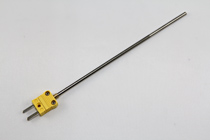 |
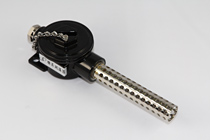 |
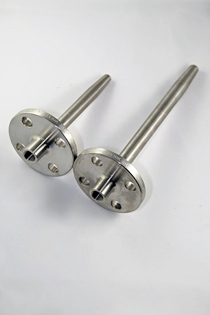 |
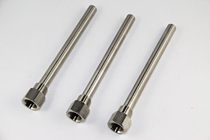 |
| LS-9-1 SHEATH |
LS-KF |
Protective tube -1 |
Protective tube -2 |
| |
|
|
|
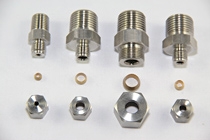 |
 |
|
|
| Moving thread FITTING |
Copper base |
|
|
| |
|
|
|
|










